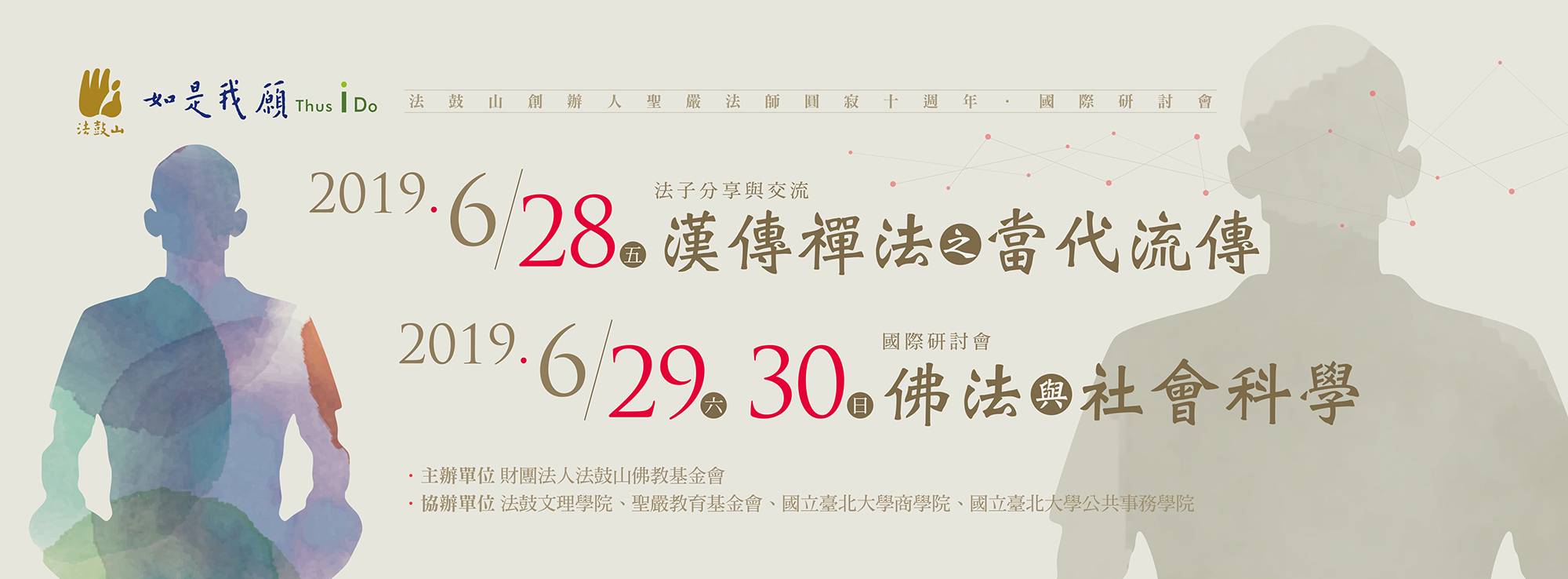Promoting Chinese Buddhism as social reform in the global religious context: The education approaches of Master Sheng Yen
Ngar-sze Lau
This paper examines how the education approaches of Master Sheng Yen in promoting Chinese Buddhism as a social reform in the global religious context. Richard Gombrich contends that Buddhism has contributed to social reform in its very beginning by changing the world of the Brahmins and caste system with a new soteriological pathway for human beings. With the influence of colonialism and the encounter with the West, Buddhist reformers in Asia have actively transformed ‘traditional Buddhism’ as ‘engaged Buddhism’ since the start of ‘Buddhism modernization’ in the nineteenth century. Buddhist reformers in modern China, such as Yang Wenhui, Taixu and Yinshun, have initially established the horizon of Buddhism with a global religious perspective. The next generation Buddhist reform established by Master Sheng Yen has built up a quite unique case in late twentieth century. Master Sheng Yen, who received Chan meditation teachings from Master Lingyuan, had experienced a 6-year intensive closed retreat.
Instead of following traditional way of teaching Chan, he chose to equip himself with academic training in Japan before teaching meditation to the Westerners in the West in the 1970s.
By establishing Dharma Drum Mountain in Taiwan and meditation centres overseas, Sheng Yen has not only promoted Chan education in monasteries, but also established non-sectarian academic institutes with global perspectives as Buddhist and social reform. By studying the works of Master Sheng Yen, this paper will examine how the education approaches of Master Sheng Yen have provided a unique way of transforming Buddhism as well as the society.
